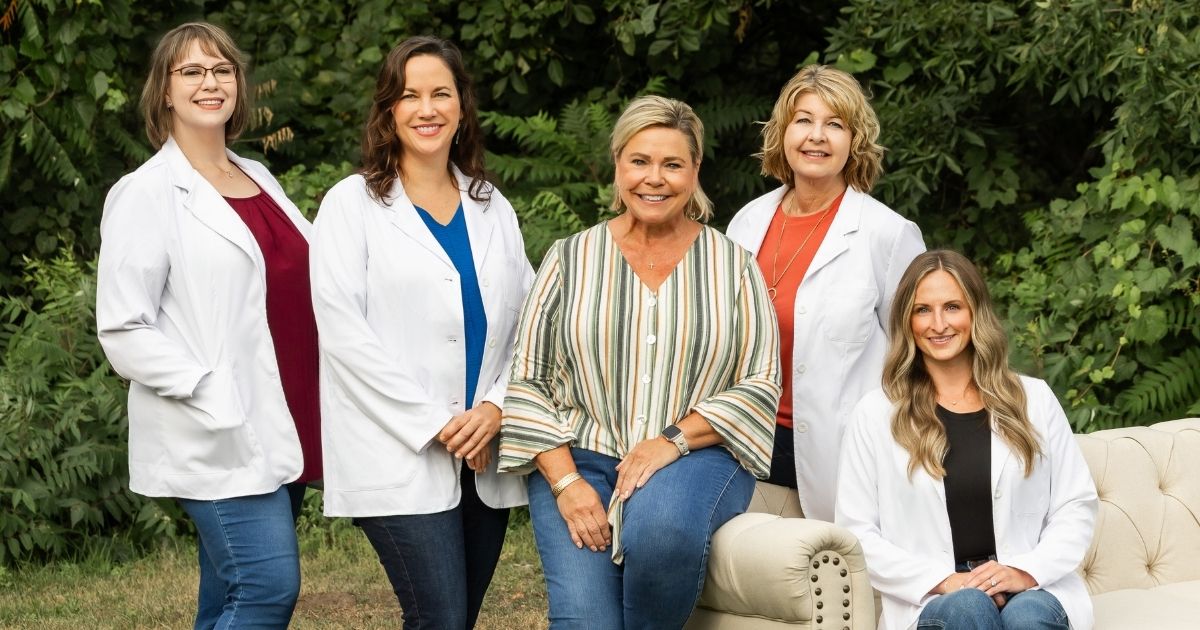Bumping uglies, knocking boots, doing the deed—we know all the sex euphemisms, but let's dive deeper. Is sex really getting you off?
For many women, it's not as enjoyable as it should be. According to Women's Attributions Regarding Why They Have Difficulty Reaching Orgasm, 10 to 40% of women report difficulty or an inability to reach orgasm. Many factors can go into the lack of satisfaction, from concerns over aging to low desire to dryness—reasons that can and should be addressed.
It's 2020. Everyone deserves to reach a Big O.
Like Fine Wine
Despite many misconceptions, there is sex past 40 and many women don't in fact lose their desire for a romp in the sheets. A 2017 National Poll on Healthy Aging conducted with the University of Michigan found that 40% of men and women ages 65 to 80 were still having sex. The International Society for the Study of Women's Sexual Health followed over 3,200 women for 15 years and discovered it's a myth that women lose interest in sex as they enter midlife and beyond.
"Interest and satisfaction with sexual encounters does not decrease with advancing age or—as I like to refer to it—advancing maturity," said Nisha McKenzie, PA-C, CSC, NCMP, IF, founder of Women's Health Collective in Grand Rapids and a nationally certified menopause practitioner and sexuality counselor.
The Wetter, The Better
If dryness is holding you back, you are not alone. Hormonal disruptions during perimenopause and menopause can cause decreased vaginal lubrication and increased pain, dryness, or burning with external genital touch or penetration, McKenzie notes. "We retreat from pain—that is a survival mechanism, much like a hand moved away from a hot stove. Our compensatory and protective mechanism is low desire."
This type of pain and burning is relatively easily addressed, once discovered. Unfortunately, McKenzie points out, multiple national and international surveys show only 10 – 15% of healthcare providers, including gynecologists, ask their patients about vaginal concerns, pain, and dryness. "We also know that patients want their healthcare providers to ask them these questions. The work remains to close this gap in communication between healthcare providers and patients."
McKenzie recommends using lube—even if only in small amounts—to every person with a vagina.
"Contrary to 50 Shades of Grey, our bodies don't always respond to sexual stimuli with vaginal wetness."
It's called genital discordance, a process where the brain and genitals aren't on the same page. Essentially, a woman can be aroused and dry, or not aroused at all and become wet. "If we trust our genitals to tell the story of what's going through our brains, we may be wrong—about 70% of the time for women," McKenzie said.
"So, lube. Every. Single. Time."
Combating Dryness
McKenzie suggests trying Uberlube or Sliquid, among several good lubes available. Menopausal individuals should steer clear of lubes with menthol or touting a "zesty" or "zinging" sensation, which can cause burning to tissue that lacks estrogen.
Taboo Talk
If the desire is there and dryness isn't an issue? It may be time for a "sex talk." Many women lack sexual satisfaction because conversation never went there. It may be the source of immense shame and awkwardness—when everyone deserves to find pleasure. "Always ask to have these conversations outside of the bedroom or outside of a sexual encounter.
"Taking that awkward first step that can lead to a greater sense of intimacy and comfort—let alone to better sex and pleasure for both of you!" McKenzie lamented. At the end of the day, you'll need to acknowledge the awkward.
"Every single body has the right to experience sex and pleasure in a way that is comfortable and fitting for them," McKenzie said, adding that the fears, stigmas, "normals," and "shoulds" surrounding women's sexuality are learned in early childhood and often preclude the option for pleasure.
"It's time to start changing the narrative around sexuality—to remove fear and shame and add understanding of sexuality as a basic human right—and thereby give women the tools to tap into their authentic sexual being so they can learn how they want to harness and even perhaps share that in a safe, responsible, pleasurable way."
April Simone Stevens, a Grand Rapids-based book blogger, enjoys writing, reading and cooking. When not working as a digital producer for 13 ON YOUR SIDE, April Simone is often found between the stacks at local bookstores or sipping tea at her favorite cafe. Keep up with her adventures and reflections on Instagram: @books.with.april
This article originally appeared in the Dec 2020/Jan 2021 issue of West Michigan Woman.




